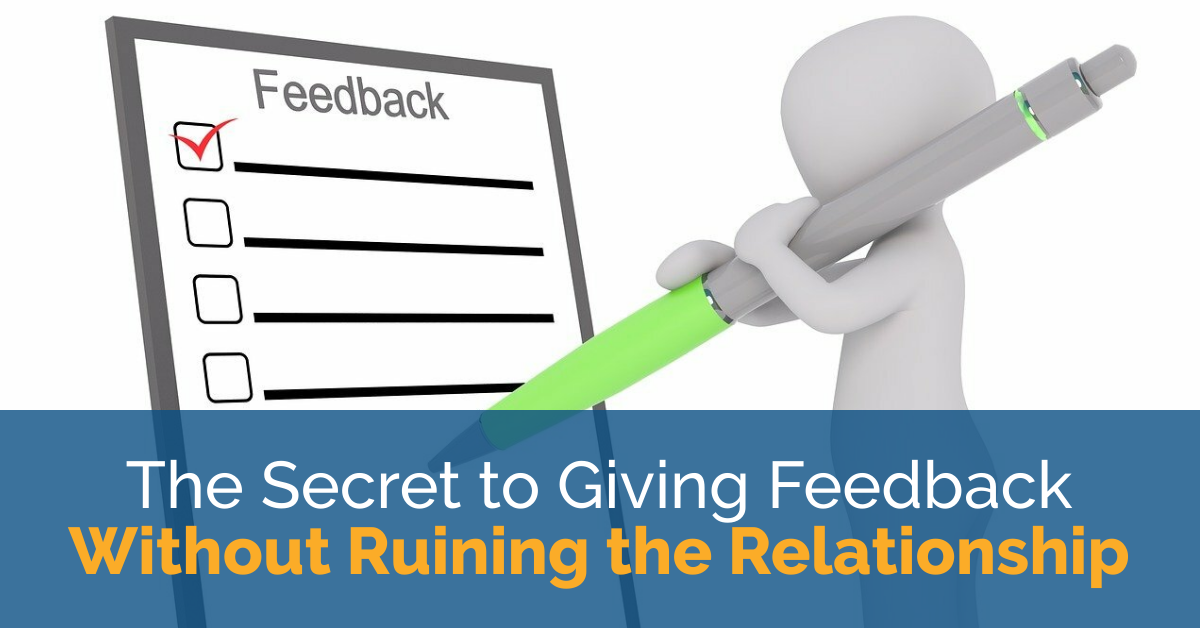
The Secret to Giving Feedback Without Ruining the Relationship
Giving feedback is one of the most important communication techniques in any workplace. It’s also one of the trickiest.
Maybe you’ve ever avoided a tough conversation, over-explained, or backed down mid-sentence. Feedback taps straight into the human side of work, where ego, emotion, and uncertainty often take over.
Feedback doesn’t have to feel awkward or risky. Done well, it strengthens trust, lifts performance, and builds healthier working relationships.
In fact, effective feedback is one of the most powerful tools we have for performance management, and not just the annual review kind. We’re talking everyday conversations that shape behaviour, align goals, and help people grow.
So how do we give feedback with more clarity, confidence and compassion?
1. Start with Mindset: What’s the Conversation For?
Before saying anything, get clear on your purpose. Are you correcting? Coaching? Clarifying expectations?
Your mindset shapes your tone. If you show up frustrated or self-righteous, the other person will feel it, no matter how polite your words are.
Start from curiosity and respect. Think of the conversation not as a confrontation, but as a shared opportunity to move forward. This is the essence of modern communication techniques: purpose-driven, emotionally intelligent, and person-centred.
2. Always Empathy First
One of the biggest mistakes in feedback is jumping in too fast. If the other person doesn’t feel heard, they’ll likely go into defence mode and nothing will land.
Empathy isn’t a warm-up act. It’s the core of the human side of work. It’s about genuinely tuning in to how the other person might be feeling, what pressures they’re under, and how they might interpret your words.
Want your message to be received, not just delivered? Listen first. Then speak.
3. Structure Matters: Use the GIFT Model
Unstructured feedback tends to ramble—or worse, sting. That’s where the GIFT model comes in. It’s a simple framework that keeps the conversation clear and productive:
- G – Giving the Facts: “I observed…” What actually happened? Stick to observable behaviours, not assumptions.
- I – Interpretation & Impact: “I felt…” or “The impact was…” Share your experience honestly, without blame.
- F – Future Change or Continuation: “I’d like to see…” or “Let’s keep doing…” Name what needs to shift—or what’s working well.
- T – Take Action: “What are the next steps?” Agree on a plan, with timelines and support.
This isn’t just a feedback formula—it’s a practical communication technique that helps keep things respectful and goal-oriented.
4. Know Your Triggers: Stay Out of the Overextended Zone
In the Lumina Spark model, we talk about the difference between your effective self and your overextended self.
Let’s say you’re naturally Outcome Focused. In a feedback conversation, that can be a strength, driving progress, keeping things on track. But if stress takes over, it can quickly tip into being pushy or dismissive.
Same goes for People Focused types. You might avoid saying what needs to be said to protect the relationship, ironically weakening it over time.
Notice when you’re slipping into unhelpful patterns. Stay grounded in your strengths, but don’t let them go into overdrive. That’s where feedback goes off the rails.
5. Feedback Isn’t a Monologue. It’s a Dialogue
This is where old-school performance management often got it wrong. One person talked. The other listened (or pretended to).
Real progress comes when both people are engaged. Instead of telling someone how to improve, ask questions. Invite their view. Co-create the solution.
Why? Because when people feel part of the process, they’re more likely to take ownership. This makes feedback not just about correction, but about collaboration and that’s what the human side of work is all about.
Feedback isn’t just a skill. It’s a practice. A daily choice to communicate clearly, listen deeply, and lead with both heart and head.
It sits at the crossroads of the most critical areas in modern workplaces:
- Effective communication techniques
- Practical, real-time performance management
- And a more human, more sustainable approach to leadership and work
So next time you need to have that conversation, don’t dodge it. Prepare for it. Plan it. Use tools like GIFT.
And remember: feedback, done well, doesn’t damage relationships. It strengthens them.
Looking to develop your team’s feedback skills, improve communication, or explore the human dynamics behind performance? Let’s talk.
Whether it’s one-to-one coaching or team development using Lumina Spark, I help workplaces build the skills to talk about what really matters, without the drama.
Check out our upcoming free MASTERCLASSES that focus on how to Feel Good at Work, how to work Better Together, Talk Smart (communication techniques), Mission Control (leadership techniques), Essential Human Skills, and how to Tame Your Time.
If you want to improve your behavioural skills and master the human side of work, book your free strategy session here.
Listen to Podcast Here:
About the Author



